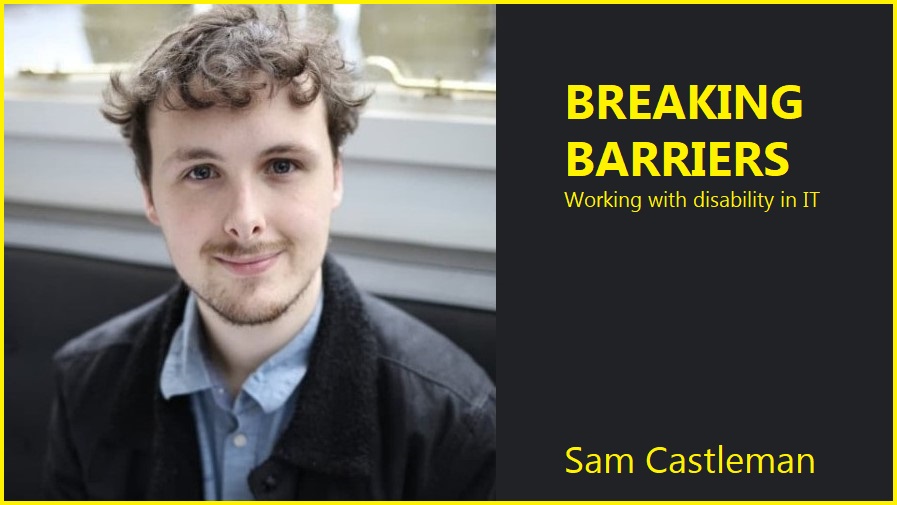Sam Castleman applied for more than 150 jobs when he was looking for part-time work while studying at university. He was knocked back for every single one.
Castleman is on the autism spectrum, and now believes this slew of employment rejections were due largely to his condition.
“In hindsight I think it was very likely because of my condition,” Castleman said. “When I met with the owners in person, I had difficulty talking to them and making conversation.”
Later, when Castleman heard about a new neurodiversity program IBM was trying out in Australia through the Client Innovation Centre in Ballarat, he jumped to apply for it.
Along with 15 other candidates, Castleman was put through his paces for four weeks, and was then one of 10 participants to be hired by the tech giant.
The neurodiversity program, run in partnership with social enterprise Specialisterne, aims to provide employment hope to people on the autism spectrum, and help the IBM workforce be more neurodiverse and inclusive.
The 10 roles were all IT jobs, including in testing, developing, data analytics and business analytics. The program received more than 50 applications.
Before launching the program, Specialisterne worked with IBM’s staff to increase their capacity and confidence with a number of autism-specific training and awareness programs.
The program in Ballarat followed IBM’s successful IGNITE Autism Spectrum Disorder Program in the USA, which involved planning, sourcing, staff awareness workshops and a four-week assessment phase, along with ongoing support for new hires and existing staff.
The 23-year-old has now worked at IBM for about a year, and the program has already proven to be life-changing.
“It’s been a really positive experience,” he said. “One of the biggest things is being in an environment where I’m not only accepted but acknowledged and celebrated. That’s something I hadn’t ever had before IBM.
“I used to only tell a few friends about my condition because of the negative stigma, now I’m really accepted. What makes me unique is what makes me valuable.”
Castleman has had a near-lifelong interest in tech, and taught himself some basic scripting in primary and high school.
At IBM, he’s worked on an internal project focusing on automation, a government project, and now some new work centring on blockchain, a primary area of interest for Castleman.
“As I was coming into IBM, I had a fascination with blockchain,” he said. “I had done a lot of research and then a lot of training in those areas, and that’s been my goal since I joined.”
Through the IBM program, Castleman has been able to bring a unique way of thinking, which has been beneficial for him and the tech giant.
“Different thinking is the most important thing being on the spectrum brings, it’s a different perspective and a different way of thinking,” he said.
“Mine manifests in a drive for perfection, for better or worse. I’m always willing to and interested in finding different ways of doing something.”
There’s a lot of stigma around people with autism in the workplace, Castleman said, but they can bring a lot to a company.
“There’s a lot of negative stigma around autism in general, and a lot of worries that we’re very difficult to work with,” he said.
“You hear terms like ‘meltdown’ and I find that problematic. That implies that at any point we’re going to explode and be impossible to deal with.
“But that’s actually quite rare. That kind of terminology and language puts people off working with us and inspires a lot of the prejudice against us.
“In reality there are a lot of benefits and a properly managed workspace like IBM has achieved alleviates all of those issues.”
In contrast to the more than 100 unsuccessful applications and interviews Castleman went through earlier, the program allowed him to prove his talents and skills in a better setting.
“Instead of a typical one-on-one, five-minute conversation, this was a four-week program to demonstrate skills and things you wouldn’t see in a typical hiring process,” he said. “That’s what’s really important.”
The program has been so successful because it consulted widely with people on the spectrum and partnered with an organisation with experience on the matter, and received widespread support within IBM, Castleman said.
“I could name half a dozen people who have been mentors to me,” he said. “I’ve had a number of mentors through my training that I’m now quite close with. There are so many people who want us to succeed.”
More tech companies need to make their workplaces more inclusive of people on the spectrum and people with disabilities, with this helping everyone involved, he said.
“Accommodating neurodiversity through hiring programs and post-hiring environment changes more than just benefits people on the spectrum, it enables us to bring our skills in and that’s something that will help a lot of people in general,” Castleman said.
“As companies accommodate that diversity, they’ll find themselves creating a better environment for all workers.”










